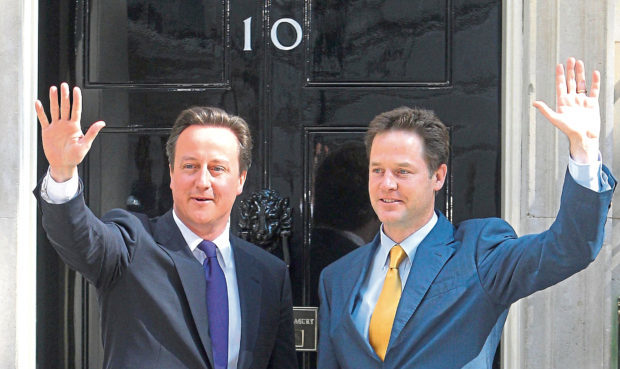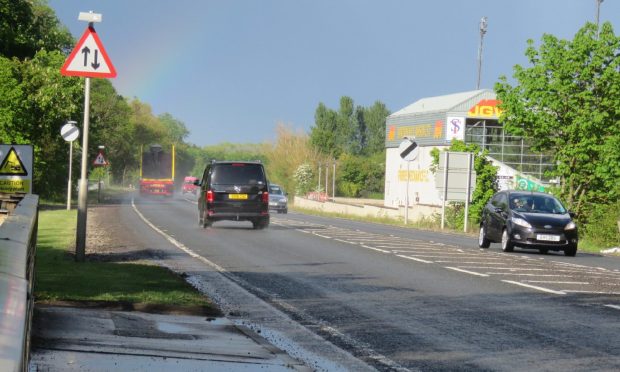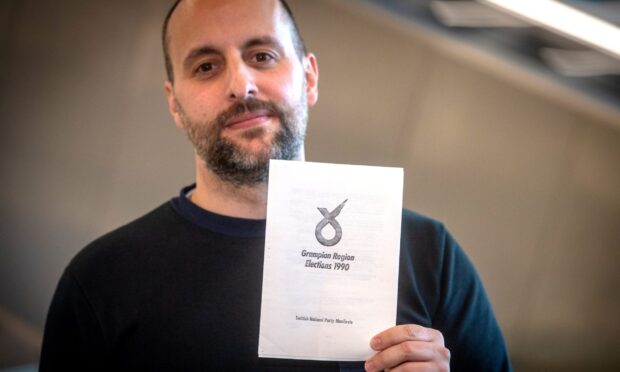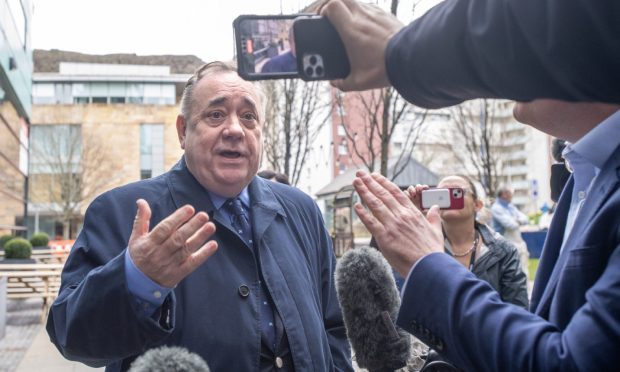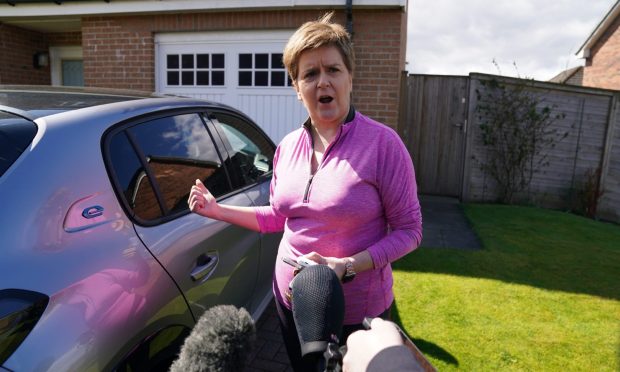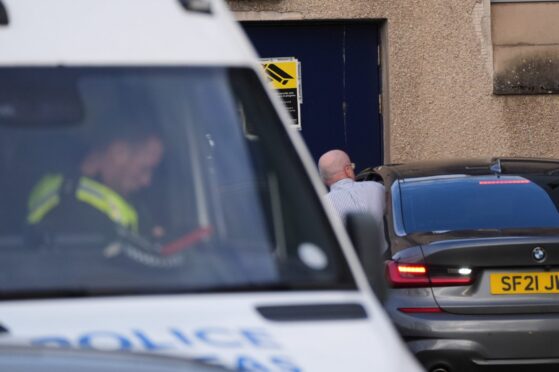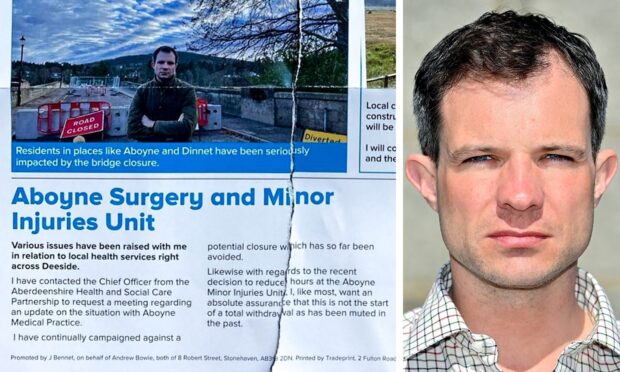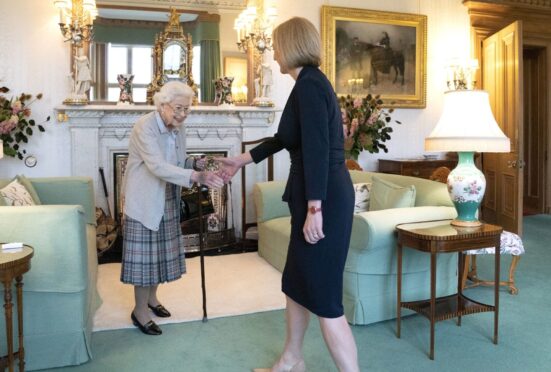Right now, it would appear to be a historic blunder that has left Britain deeply divided and stumbling towards the abyss.
Warnings in just the past few days have included that North Sea oil and gas platforms will be effectively shut down and tens of thousands of jobs will go at Jaguar Land Rover.
It was similar last week and will likely be no different in the week to come, particularly as party conference season is upon us and the deadline for a Brexit deal hurtles closer.
The daily dose of doom left Brexit-backing Aberdeen South MP Ross Thomson calling this week for an end to the depiction of “some kind of Armageddon scenario”.
He may have been correct that reports of the end of the world are premature but little else appears certain on the issue of Brexit, including whether it will definitely happen, what form it will ultimately take if it does or what the consequences will be.
Prime Minister Theresa May still does not know if she will survive from day to day as she attempts to deliver what she almost certainly thinks will be bad for the country. In fact, the very survival of the Conservative Party, and the Labour Party, cannot be guaranteed at this moment, or Britain as we know it, as talk of a second Scottish independence referendum, and even Irish reunification, grows.
Rarely before has the country faced such turmoil, it would seem, and that sense is only intensified by the period coinciding with the era of a highly unpredictable US president, the rise of populist right-wingers across Europe, and escalating tension with Russia.
Whatever unfolds over the next few weeks and months is sure to be pored over by Modern Studies classes and PhD students for decades to come. But it can be tricky for politicians, commentators and journalists to accurately judge the significance of events as they happen.
A decade ago, for example, Britain appeared to be on the brink of bankruptcy after the financial crash and banking bail-out. Few had predicted the Tories and Liberal Democrats would form the first coalition government at Westminster since the Second World War, and even fewer thought it would last.
It felt, at the time, that we were in the midst of an age that was fraught with uncertainty. And it was. But perceptions can change quickly, for better or worse, depending on what follows.
Now, little over eight years after they took power, much of the era of David Cameron, George Osborne, Nick Clegg and Danny Alexander is remembered by many, through today’s lenses, as a time of relative stability, if it is even remembered at all.
Looking back from 2018, the most significant act of the coalition was agreeing to hold the referendum on exiting the European Union, thus ushering in the current crisis.
Its commitment to austerity was another of that UK Government’s defining characteristics but, whatever your stance at the time on its necessity or impact on people’s lives, the belt-tightening pursued by Mr Osborne can now be recalled in the Age of Brexit as having unintentionally helped to create the conditions that made a Leave vote possible.
Of course, it was the coalition that was in power at Westminster during the 2014 Scottish independence referendum, a period regarded as transformative for politics north of the border. But that again may soon be redefined as simply a prelude, if Brexit leads to a second, decisive plebiscite.
Historians will also no doubt look beyond the coalition in search of the roots of the present debacle, as they seek to place it in its appropriate context. The 2003 Iraq invasion, for example, has been judged to have contributed towards the deterioration in the public’s trust in their political leaders, which manifested itself so clearly when a majority defied the government’s wishes and backed quitting the EU in 2016.
It should also not be forgotten by Brexiteers that polls on the eve of Tony Blair’s military action 15 years ago showed a similar level of public support to that which backed Leave in the referendum, and the fury of the fall-out was fuelled as much by those proponents who believed they had been misled and betrayed as that of the war’s opponents, who felt ignored and vindicated.
The lessons for the Brexit era from these pivotal events from our recent past, and their unintended consequences, also underline how history is seldom written by those who initially appear to be the victors. Mr Blair was electorally untouchable and won his war, but lost the peace, his legacy, and his party in the process, paving the way for the rise of the SNP, and Jeremy Corbyn to boot.
Gordon Brown bailed out the banks and appeared to have helped to save the global economic system; however, it made little difference to his own political fate.
That heralded the arrival of Mr Cameron and Mr Clegg, who secured the chance to begin rebuilding Britain’s battered budget, only to pave the way for Brexit, and their own demise, along the way.
The Brexiteers, therefore, may have won the vote but they cannot know, or control, what unfolds next. Of course, they should not be written off just yet.
The tidal wave of negativity which they helped create and so often decry could work to their advantage, as it has lowered expectations to such an extent that anything short of Armageddon or abyss might now be construed as a victory.
But the lessons from their predecessors suggest that the success or otherwise of Brexit will not be the measure by which Mrs May, the Brexiteers and this current period of uncertainty are ultimately judged. The verdict of history will depend on the unforeseen forces that are unleashed in their wake.
